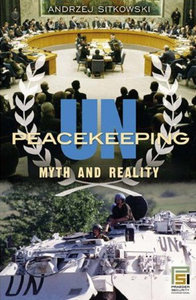By John G. Stoessinger
Distinguished Professor of Global Diplomacy University of San Diego
Preface
1. The Iron Dice: World War I
The Kaiser’s Fateful Pledge, The Austrian Ultimatum to Serbia, The Closing Trap, The Iron Dice, Conclusion
2. Barbarossa: Hitler’s Attack on Russia
Hitler and Russia, Stalin and Germany, Conclusion
3. The Temptations of Victory: Korea
President Truman’s Decision, General Macarthur’s Gamble, North Korea’s Brinksmanship
4. A Greek Tragedy in Five Acts: Vietnam
Act One: Truman-Asia was not Europe, Act Two: Eisenhower-The Lesson of France Ignored, Act Three: Kennedy-The Military, Act Four: Johnson-The Catastrophe, Act Five: Nixon-Full Circle, Conclusion
5. From Sarajevo to Kosovo: The Wars of Europe’s Last Dictator
The Dismemberment of Yugoslavia Begins, The War in Bosnia, The Tide Turns Against the Serbs The Dayton Peace Accords, The UN War Crimes Tribunal 153 Kosovo and Milosevic’s Downfall, Conclusion: A New Dawn of Peace with Justice?
6. In the Name of God: Hindus and Moslems in India and Pakistan
Colonialism, Partition, and War, The Kashmir War of 1965, The Bloody Dawn of Bangladesh, Nuclear Viagra, India’s 9/11: Mumbai, November 2008
7. The Sixty Years’ War in the Holy Land: Israel and the Arabs
The Palestine War of 1948, The Sinai Campaign and the Suez Crisis of 1956, The Six-Day War of 1967 The October War of 1973, The Lebanese Tragedy, The Palestinian Uprising, The Peace Process: Between Fear and Hope The Second Palestinian Uprising and the Road Map, History Interrupted, “Giving War a Chance”: America, Israel, and Hezbollah, War Over Gaza, Conclusion
8. The War Lover: Saddam Hussein’s Wars against Iran and Kuwait
The Iran-Iraq War: The Price of Martyrdom, Saddam’s Aggression Against Kuwait
9. New Wars for a New Century: America and the World of Islam
George W. Bush: From Pragmatist to Crusader, War Drums, The “War After the War”: Dilemmas of Occupation, The Capture of Saddam, Mission Accomplished? Elections in Iraq, The Descent Into Civil War, Law and Society Under Islam: Three Vignettes Nato’s War in Afghanistan, The Iranian People’s Uprising of 2009 and the Nuclear Crisis, The Trial of Saddam Hussein, Reflections on Iraq’s Past and Future What Went Wrong?, What Can be Done to Set Things Right?, Conclusion: Perils of Empire
10. Why Nations Go to War
The Determinants of War, Heart of Darkness: Rwanda and Darfur, Learning from History
Republished by Kajian Internasional Strategis




Komentar Bersama